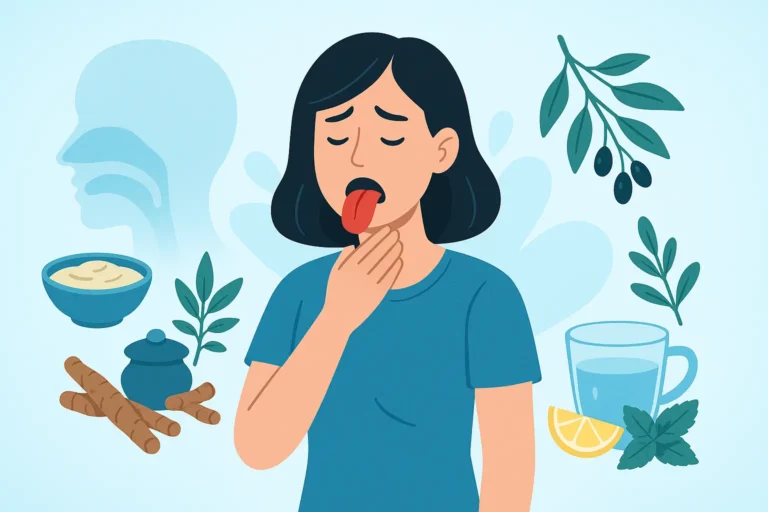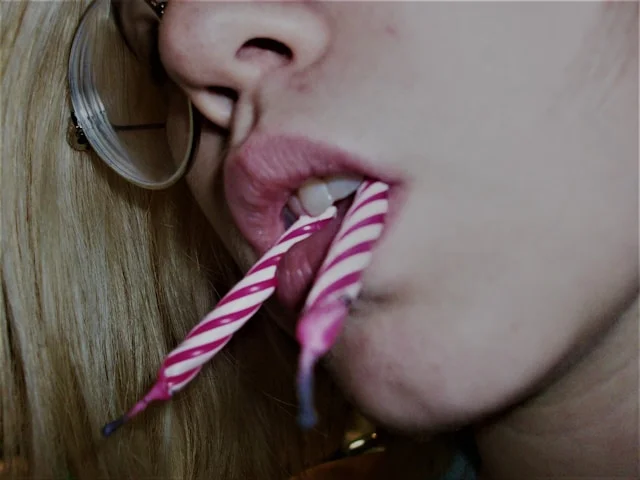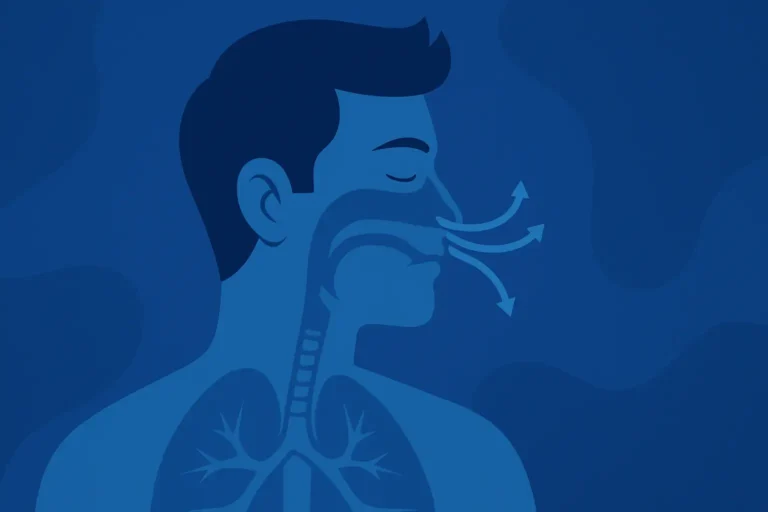How to Keep Mouth Moist Without Water: 11 Easy Tricks That Work
If you’ve ever been stuck somewhere without a water bottle and suddenly realized your mouth feels dry, you know how uncomfortable it can be. Whether it’s because of medication, allergies, or just being in a hot, dry environment, dry mouth (also called xerostomia) makes it harder to talk, swallow, and even taste food.
But here’s the good news: there are several ways to keep your mouth moist without actually drinking water. In this post, I’ll walk you through 11 simple, science-backed tricks you can use right away.
Why Your Mouth Gets Dry in the First Place
Before jumping into solutions, let’s quickly cover why dry mouth happens. Your saliva glands are responsible for keeping your mouth moist. But sometimes, they don’t produce enough saliva, and you’re left with that sticky, parched feeling.
Some common causes include:
- Dehydration (not drinking enough fluids overall)
- Certain medications (like antihistamines, antidepressants, or blood pressure pills)
- Breathing through your mouth (especially when sleeping)
- Stress and anxiety
- Medical conditions such as diabetes or Sjögren’s syndrome
Knowing the cause can help, but when you can’t grab a glass of water right away, these quick fixes will help you get relief.
1. Chew Sugar-Free Gum
One of the fastest ways to stimulate saliva production is chewing. The act of chewing signals your salivary glands to start working, which helps rehydrate your mouth naturally.
The key is to pick sugar-free gum. Sugar-containing gum can increase the risk of cavities—something dry mouth sufferers are already more prone to.
Look for gum with xylitol, a natural sweetener that’s good for oral health and can even reduce harmful bacteria in your mouth.
Best option: Keep a small pack of sugar-free gum in your pocket, purse, or car so you’re never caught off guard.
2. Suck on Sugar-Free Lozenges or Hard Candy
Just like gum, sucking on a lozenge or hard candy encourages saliva flow. The longer the candy dissolves, the more stimulation your salivary glands get.
Choose sugar-free versions to protect your teeth. Some lozenges are even specially designed for dry mouth and contain ingredients like xylitol or mild lubricants to soothe oral tissues.
Try: Products labeled “for dry mouth” at your local pharmacy.
3. Breathe Through Your Nose, Not Your Mouth
This one seems obvious, but many people don’t realize that mouth breathing dries out your mouth very quickly. Even just a few minutes of mouth breathing can leave your tongue and gums feeling parched.
If you catch yourself breathing through your mouth, make a conscious effort to switch to nasal breathing.
At night, if you snore or breathe through your mouth in your sleep, consider using:
- A nasal strip to open airways
- A saline spray before bed
- Talking to your doctor if you suspect sleep apnea
4. Try an Alcohol-Free Mouthwash
Many regular mouthwashes contain alcohol, which can make dryness worse. Instead, look for an alcohol-free, moisturizing mouthwash. These are designed to coat your mouth and hold moisture in for longer periods.
Some contain aloe vera or glycerin—both of which can help soothe dry tissue.
Example: Biotène mouthwash, a popular brand recommended for dry mouth relief.
5. Use a Saliva Substitute Spray
If you deal with frequent dry mouth, saliva substitute sprays can be a lifesaver. These sprays mimic natural saliva, coating your mouth and giving you temporary relief.
They’re small enough to carry in a pocket or bag, so you can use them anywhere—like during a long meeting, while traveling, or even at night when you wake up thirsty but don’t have water nearby.
You can find these sprays at most pharmacies or online.
6. Snack on Moist Foods
If you’re hungry and water isn’t available, choose foods that naturally contain moisture. Fresh fruits like oranges, grapes, or melon are great options. Soft foods like yogurt or applesauce can also help.
Avoid dry, salty snacks like crackers or chips, which soak up what little saliva you have and make the problem worse.
7. Avoid Caffeine and Alcohol (When You Can)
Coffee, tea, soda, and alcoholic drinks are all diuretics, which means they make your body lose fluids faster. They also directly dry out your mouth.
If you’re struggling with dryness and don’t have water handy, skip these drinks for the moment.
Instead, if you need something to sip, choose decaf tea or a drink specifically formulated for hydration (like electrolyte solutions).
8. Keep Lip Balm Handy
This tip might surprise you, but moisturizing your lips actually helps your mouth feel less dry. When your lips crack and peel, you naturally lick them more often, which evaporates saliva and makes your mouth drier.
By keeping your lips sealed with a balm, you’ll reduce that cycle and trap more moisture inside your mouth.
9. Humidify Your Environment
Dry indoor air can suck the moisture right out of your mouth and throat, especially in the winter or in air-conditioned rooms.
Using a humidifier can add moisture back to the air, which makes a noticeable difference—especially while you sleep. If you don’t have a humidifier, even placing a bowl of water near your bed can help add some humidity.
10. Practice Gentle Tongue and Jaw Exercises
Moving your tongue and jaw stimulates your salivary glands. Try rolling your tongue along your cheeks or gently massaging under your jawline where the glands are located.
This physical stimulation can encourage saliva flow when you don’t have gum or lozenges round.
11. Carry a Travel-Sized Moisturizing Gel
In addition to sprays, there are oral gels you can apply directly inside your mouth. They’re usually thicker than sprays and last longer, almost like a temporary shield against dryness.
Many are sold in small, travel-friendly tubes. These can be especially useful at night if you wake up with extreme dryness, since the gel can last through several hours of sleep.
Quick Recap: The Fastest Fixes Without Water
If you’re short on time and just want the fastest relief, here are the top three hacks:
- Chew sugar-free gum to instantly stimulate saliva.
- Use a saliva spray or lozenge if gum isn’t an option.
- Switch to nose breathing to prevent dryness from getting worse.
These will give you quick comfort until you can drink some water.
Long-Term Habits to Prevent Dry Mouth
While these tips help in the moment, it’s also smart to make changes that reduce dry mouth overall. Here are some habits that can make a big difference:
- Stay hydrated throughout the day (not just when you’re thirsty).
- Avoid smoking and vaping, which dry out your mouth.
- Limit alcohol and caffeine.
- Brush and floss regularly—dry mouth increases the risk of cavities.
- Talk to your doctor if medications seem to be the cause.
When to See a Doctor About Dry Mouth
Occasional dryness isn’t usually a big deal. But if your mouth feels dry all the time, it could be a sign of something more serious, like:
- A side effect from prescription medication
- An underlying condition such as diabetes or autoimmune disease
- Salivary gland problems
If your dry mouth is persistent and uncomfortable, it’s worth checking with a healthcare provider. They can recommend prescription treatments or test for underlying causes.
Final Thoughts
Knowing how to keep your mouth moist without water can save you from a lot of discomfort, especially if you deal with dry mouth often. Whether you’re chewing gum, using a spray, or just remembering to breathe through your nose, these tricks give you options when a glass of water isn’t nearby.
And remember—while these solutions work temporarily, the best long-term strategy is to stay hydrated and manage underlying causes. But now, you’ve got plenty of practical ways to feel relief whenever dryness strikes.






